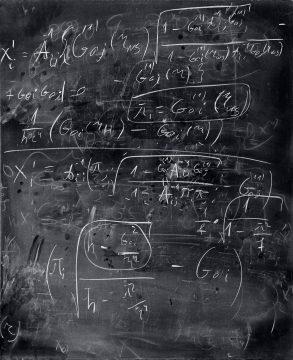Sean Carroll in the New York Times:
 “I think I can safely say that nobody really understands quantum mechanics,” observed the physicist and Nobel laureate Richard Feynman. That’s not surprising, as far as it goes. Science makes progress by confronting our lack of understanding, and quantum mechanics has a reputation for being especially mysterious.
“I think I can safely say that nobody really understands quantum mechanics,” observed the physicist and Nobel laureate Richard Feynman. That’s not surprising, as far as it goes. Science makes progress by confronting our lack of understanding, and quantum mechanics has a reputation for being especially mysterious.
What’s surprising is that physicists seem to be O.K. with not understanding the most important theory they have.
Quantum mechanics, assembled gradually by a group of brilliant minds over the first decades of the 20th century, is an incredibly successful theory. We need it to account for how atoms decay, why stars shine, how transistors and lasers work and, for that matter, why tables and chairs are solid rather than immediately collapsing onto the floor.
Scientists can use quantum mechanics with perfect confidence. But it’s a black box. We can set up a physical situation, and make predictions about what will happen next that are verified to spectacular accuracy. What we don’t do is claim to understand quantum mechanics. Physicists don’t understand their own theory any better than a typical smartphone user understands what’s going on inside the device.
More here.
